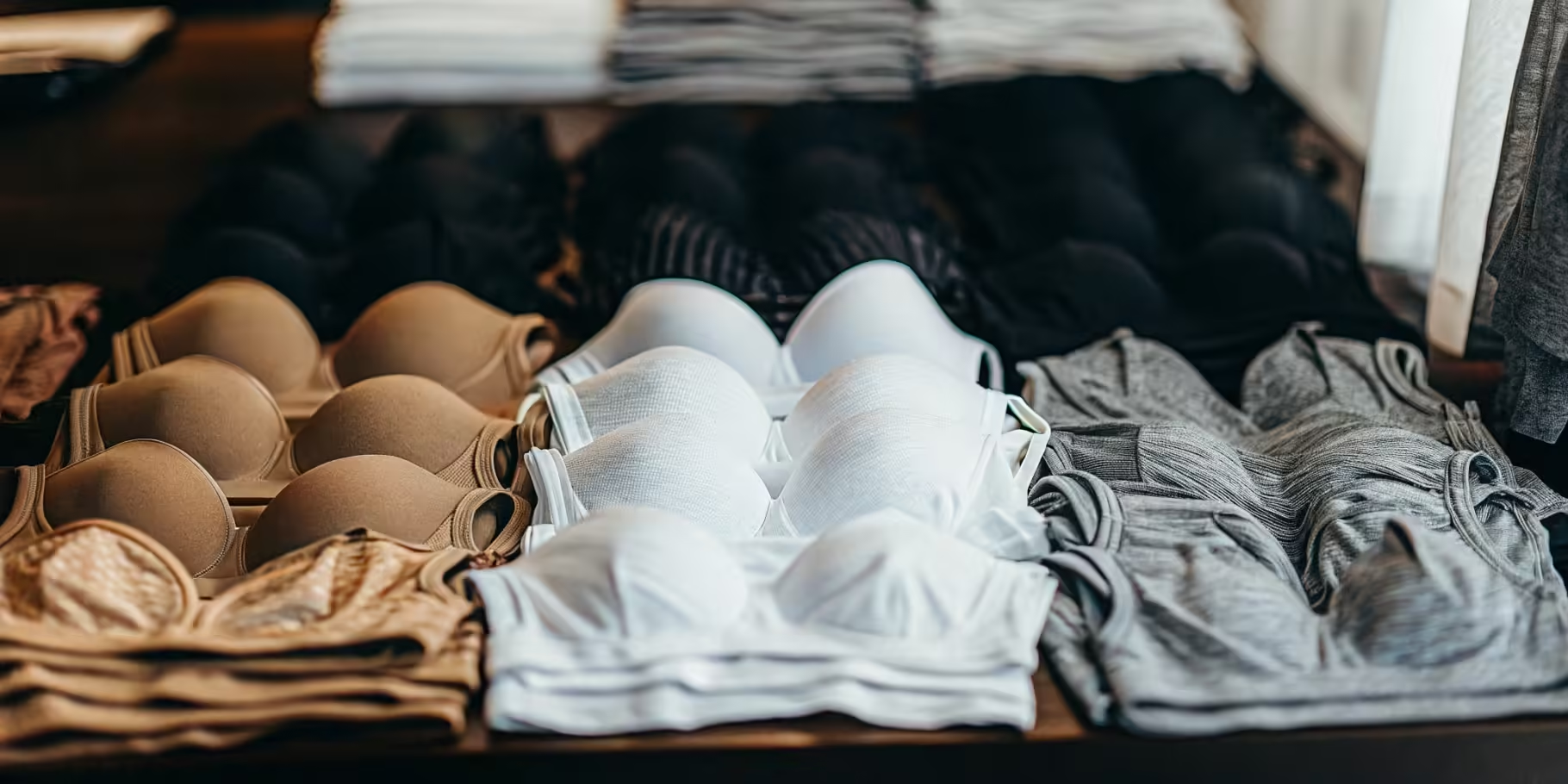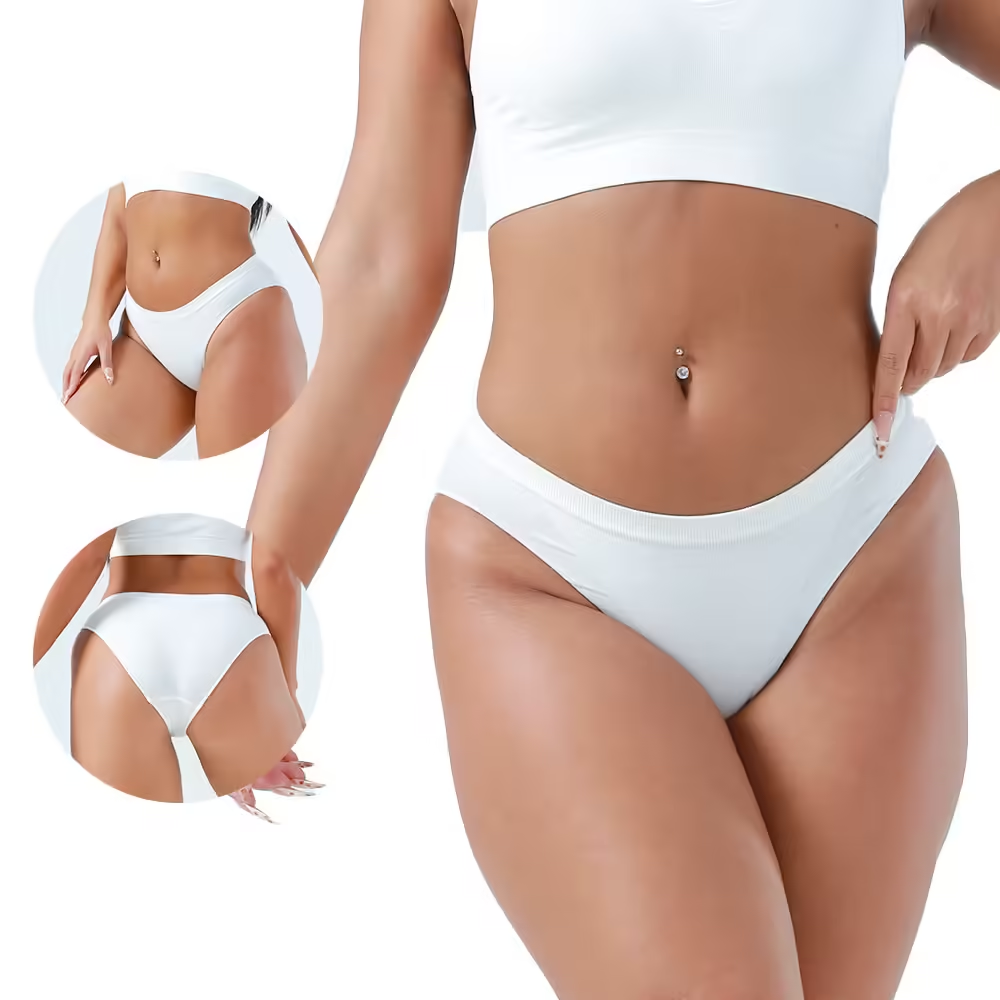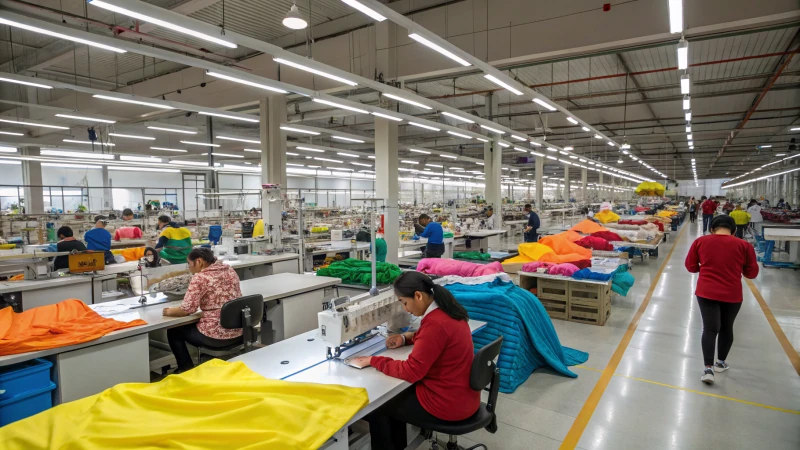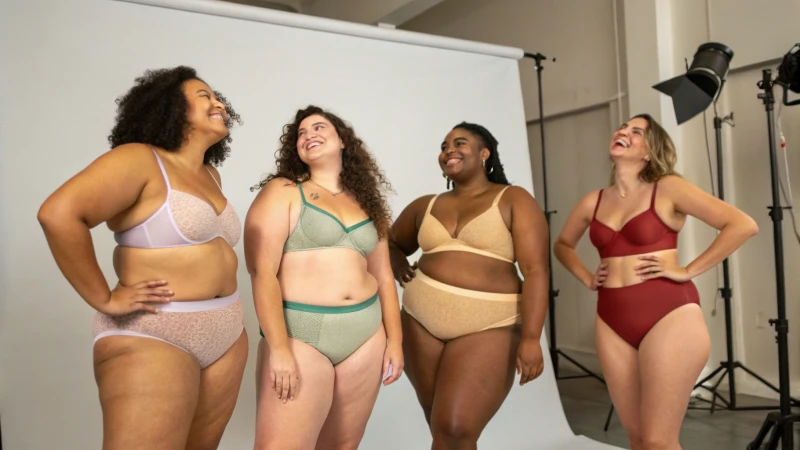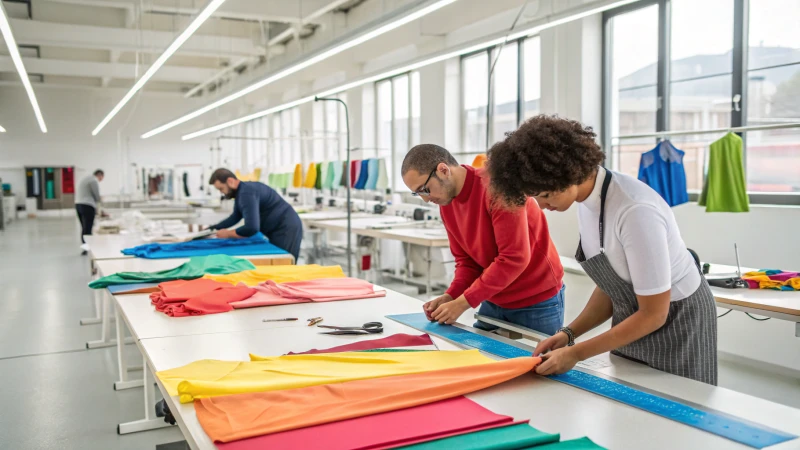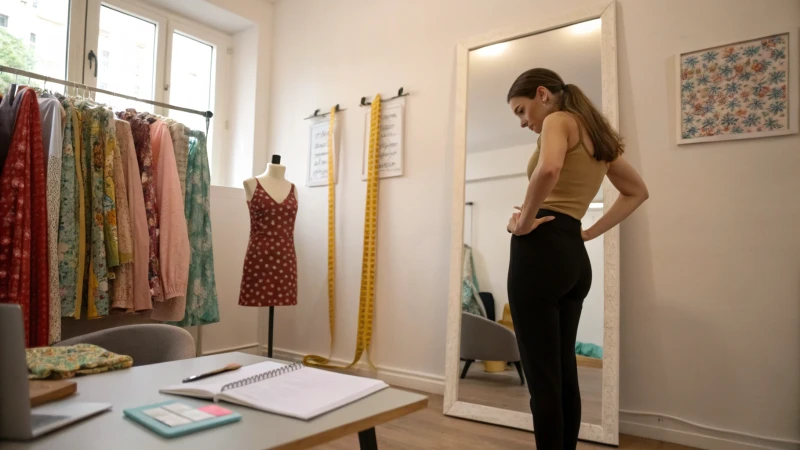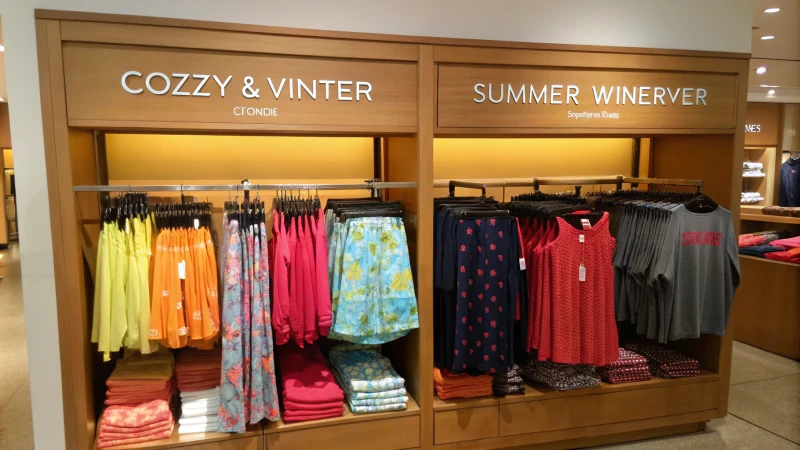
Do you ever think about how the seasons influence our underwear choices? Seasons determine our selections for more reasons than comfort. Style matters too. Savvy shopping plays a very important role.
Seasonal trends really affect underwear sales. These trends shape fabric preferences. Consumers choose differently depending on the season. Marketing strategies shift as well. During summer, the heat increases demand for light fabrics. Winter, however, sees a preference for warmer materials. Holidays increase premium sales. Promotions often ignite buying sprees.
I remember the first time I noticed how much weather affects what I wear underneath. One hot summer, I bought a lot of breathable, moisture-wicking underwear. It was a game changer! Just like I changed my clothes, brands need to change their products with the seasons. In winter, I wear thermal layers. Many others probably do the same. Seasonal trends focus on comfort. These trends guide marketing campaigns and inventory choices. Have you ever noticed how holiday sales promote luxurious gift sets? Very strategic! Understanding these patterns helps brands meet demand. It also helps them stay ahead of fashion trends all year.
Summer increases demand for lightweight underwear fabrics.True
During summer, consumers prefer breathable and lightweight materials.
Winter decreases sales of premium underwear products.False
Holidays in winter boost sales of premium products as gifts.
How Do Fabric Choices Vary Across Seasons?
Each season has its own fabric heroes. These heroes keep us comfortable and stylish. Breezy cottons comfort us in summer. Cozy wools warm us in winter.
Cotton and linen are perfect for summer. They are very breathable. Wool and fleece provide warmth in winter. Each fabric has unique benefits for different seasons. These fabrics keep you comfortable and stylish throughout the year.
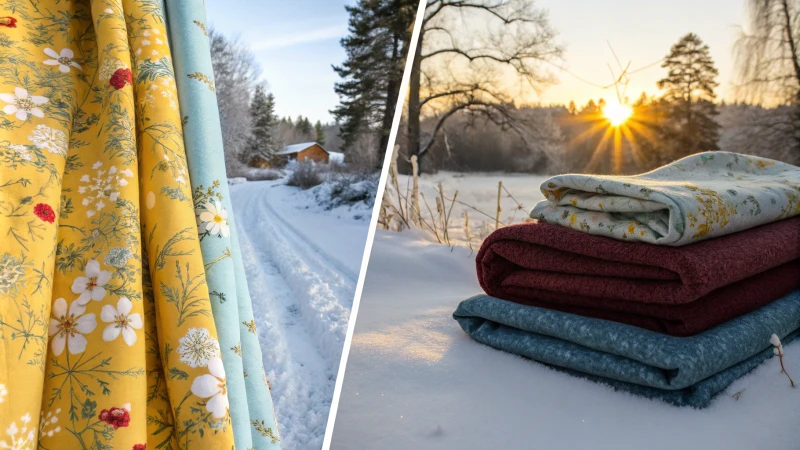
Summer Fabrics: Staying Cool and Comfortable
Ah, summer! The sun-soaked days call for fabrics that breathe and move moisture away. This keeps me really fresh all day long. Cotton is my favorite choice. It is light1 and lets air flow through, which is perfect for hot afternoons. Linen also works well. Linen spreads out heat and keeps me very cool; it's like wearing a small air conditioner!
| Fabric | Characteristics |
|---|---|
| Cotton | Lightweight, breathable |
| Linen | Cool, breathable, absorbs moisture |
Winter Fabrics: Embracing Warmth
Winter arrives, and I look for fabrics that hug me warmly. Wool is a favorite because it holds heat very well; it's like wearing a personal heater. Fleece also joins my winter clothes. Fleece is light and very warm, so I wear it without feeling heavy.
| Fabric | Characteristics |
|---|---|
| Wool | Insulating, water-resistant |
| Fleece | Lightweight, warm |
Spring and Fall: Versatile Transitions
Spring and fall are tricky because the weather keeps changing. I choose fabrics like denim and jersey. Denim is strong and looks good; it works for unpredictable temperatures. Jersey is soft and stretches; it adjusts to the changing climate, keeping me comfy.
- Denim: Strong and stylish, great for changing temperatures.
- Jersey: Soft and stretchy, perfect for shifting weather.
- Silk: Breathable with natural temperature control.
Each season needs special fabrics to keep me comfy and looking great. Knowing how these materials work helps me pick the best clothes that enhance2 my seasonal fashion experience better. I hope this guide really helps you on your fabric journey like it helped me!
Cotton is ideal for summer due to breathability.True
Cotton's lightweight and breathable nature makes it perfect for hot weather.
Denim is not suitable for spring or fall.False
Denim offers durability and moderate insulation, ideal for transitional seasons.
How Do Holiday Promotions Influence Underwear Sales?
Have you ever thought about why you buy new underwear during the holidays? Clever marketing strategies stir our festive excitement. These promotions strongly influence underwear sales. Let's explore how these methods affect buying.
Holiday promotions impact underwear sales by connecting with consumer feelings and providing tempting offers. Brands use festive themes and special discounts. They introduce exclusive collections to draw in more customers during busy shopping times.
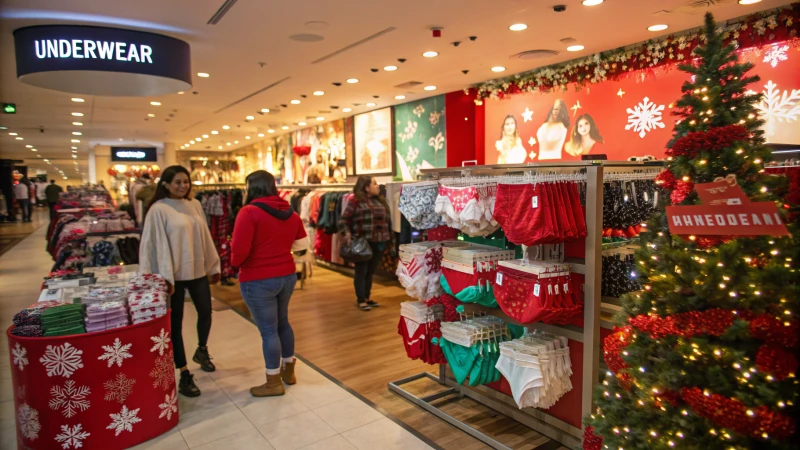
Seasonal Promotions and Consumer Behavior
I remember one holiday season. I got caught up in the festive spirit and bought a whole new set of underwear. The cute holiday designs attracted me. I am not alone. Many people spend more during the holidays, buying based on emotional purchasing3. Brands understand this and often launch holiday-themed underwear collections with unique designs that appeal to our emotions.
The Role of Discounts and Bundles
Everyone loves a good deal. Promotions like "Buy One Get One Free" or "20% off" are tempting. I once bought two sets of underwear due to a great discount; it felt like finding a treasure! These offers draw in price-sensitive shoppers and encourage gift purchases4 for others.
| Promotion Type | Consumer Reaction |
|---|---|
| Percentage Discounts | Increased impulse buying |
| Bundled Offers | Higher average transaction |
| Limited Editions | Enhanced brand loyalty |
Leveraging Digital Marketing
Digital marketing holds great power nowadays. Ads on social media often catch my attention, especially exclusive holiday promotions. Brands use platforms like Instagram and Facebook for influencer partnerships, which really help their credibility and reach.
- Social Media: Influencer partnerships enlarge audience and build trust.
- Email Campaigns: Personalized emails inform past customers about new deals and special offers.
Cultural and Festive Themes
Brands that match products with cultural or festive themes often succeed. Red-themed products for Christmas grab attention, while heart-patterned designs for Valentine's Day do well too, forming an emotional bond with shoppers that makes us more eager to purchase.
Holiday Promotions' Impact on Brand Loyalty
A positive shopping experience during the holidays often brings me back to the same brand. Brands hope we not only buy but also stay loyal, as a great experience makes us return, fostering long-term relationships. Smart planning during holiday seasons can transform challenges into opportunities for growth by building brand loyalty5.
Holiday promotions increase underwear sales by 30%.False
No specific percentage increase in sales is mentioned in the context.
Limited edition designs enhance brand loyalty.True
The context states limited editions can enhance brand loyalty.
Why is inventory management crucial during seasonal changes?
Have you ever felt that surge of panic when your warehouse overflows just as the slow season arrives? I have experienced that as well.
Managing inventory during seasonal changes is crucial for keeping supply and demand balanced. It helps to lower costs and increase sales. This task truly needs careful planning. Predicting demand accurately is important. Using technology is also key, as it provides real-time data insights.
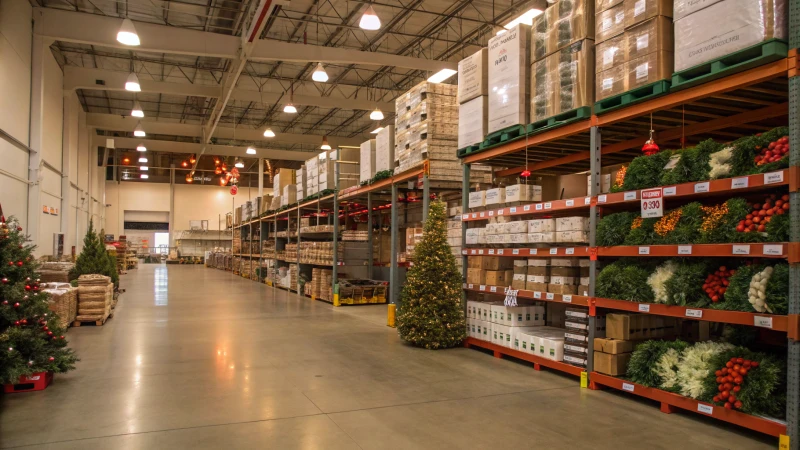
Understanding Seasonal Demand Fluctuations
I remember one summer when I was surrounded by piles of unsold winter clothing. I hadn’t expected the change to lighter fabrics and brighter colors. It taught me how seasonal changes affect what people want to buy. In warmer months, people prefer airy, breathable materials, while during colder times, they look for cozy, insulating layers. I have learned to predict these changes, which helps my business stay on track.
| Season | Consumer Preference | Product Characteristics |
|---|---|---|
| Summer | Lightweight fabrics | Breathable, moisture-wicking |
| Winter | Warmer materials | Insulating, thermal |
The Cost of Poor Inventory Management
The financial loss from bad inventory management is really serious. There was a time when I had too many products and had to face expensive storage costs. I also experienced running out of stock, which meant lost sales. Customers became unhappy and might not return. Effective inventory management6 saved me by aligning stock levels with demand to avoid these issues.
Strategies for Effective Seasonal Inventory Management
Demand Forecasting: I rely on past sales data to predict future demand. Weather patterns and cultural events also help create a strong understanding of buying habits.
Flexible Supply Chains: Building relationships with adjustable suppliers changed the game. It allows for quick production changes, saving me from overproduction problems or running out of stock fears.
Technology Integration: Inventory management software was a smart choice. These tools provide real-time data that track sales trends and adjust stock levels, improving overall operations.
Promotional Planning: I focus on marketing strategies to match seasonal trends. Targeted promotions in high-demand periods manage stock levels and increase sales.
Using these strategies helps me face seasonal inventory challenges directly. An active approach keeps my business very competitive and responsive to market needs, making customers happy and growing the business.
For those interested in exploring more about seasonal inventory trends7, there's much to learn that can help optimize your supply chain and meet consumer needs effectively.
Summer demands lightweight and breathable products.True
Consumer preferences shift to lightweight fabrics in summer.
Stockouts during seasonal changes have no financial impact.False
Stockouts lead to lost sales and diminished customer loyalty.
How Do Cultural Trends Shape Our Seasonal Underwear Choices?
Have you ever thought about how cultural trends probably influence your underwear choices? Underwear is more than just comfort or style. It is a mix of social values, seasonal needs and personal taste.
Cultural trends influence what underwear people like each season. Trends decide design, material and use. Society changes over time. Brands need to match their collections with what people want. Customers expect sustainability, inclusivity and new styles. These expectations are very important.
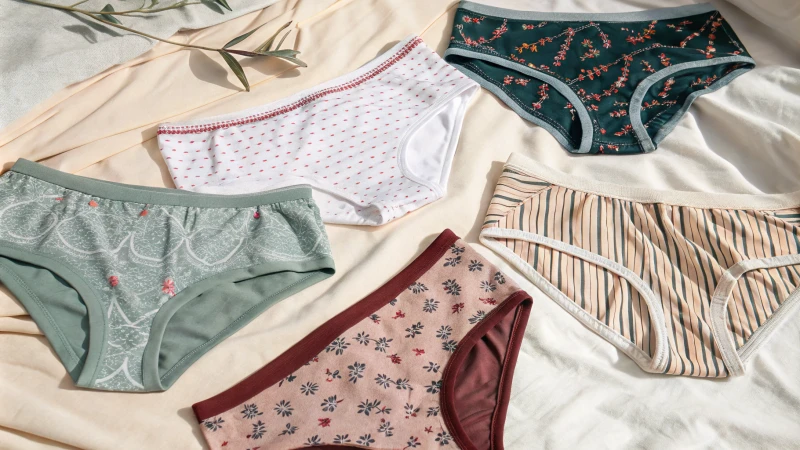
Cultural Influence on Design and Aesthetics
I remember the first time fashion started changing to include body positivity. Suddenly, clothes were about fitting us, not us fitting into them. This change brought more sizes to my favorite underwear brands. People slowly embraced wider options, reflecting society's push for inclusivity. At the same time, I noticed the minimalist movement. During hot summers, I really wanted simplicity and comfort. No extra details, just breathable ease.
The intersection of culture and fashion profoundly impacts underwear design. For instance, the growing emphasis on body positivity has led to the inclusion of inclusive sizing options8 in seasonal collections. This trend reflects a broader societal shift towards diversity and representation.
Similarly, the minimalist movement has spurred demand for simple, functional designs9 that prioritize comfort over embellishment, especially during warmer months when less layering is preferred.
Fabric Choices Driven by Cultural Values
Growing up, I never thought about how what I wore affected the environment. But then, sustainability became a popular topic and transformed how I shopped. Now, I usually choose underwear made from organic cotton or bamboo. It's interesting how small choices reflect bigger eco-friendly lifestyles. In summer, lightweight fabrics are lifesavers. They perfectly fit the season's vibe of staying cool and conscious.
As consumers become more environmentally conscious, the demand for sustainable materials in underwear has surged. Brands are increasingly using organic cotton, bamboo, and recycled fabrics to meet this demand. Seasonal preferences also play a role; lightweight, breathable fabrics are favored in summer, aligning with the cultural trend of eco-friendly lifestyles10.
Functional Needs Reflecting Lifestyle Changes
The athleisure trend surprised me. I loved that my underwear worked both for exercise and relaxing at home. This became especially true during the pandemic when staying home was normal. I moved towards designs that offered both style and comfort. These multifunctional pieces worked great for endless Zoom meetings.
Cultural shifts also dictate functionality requirements in underwear. The rise of athleisure has influenced the popularity of moisture-wicking and odor-resistant fabrics in activewear collections. These features are particularly sought after during sports seasons or warmer months.
Moreover, the pandemic has altered lifestyles, increasing the preference for loungewear that combines comfort with style. This shift has led to the incorporation of multifunctional designs11 that are suitable for both home and outdoor wear.
Seasonal Promotions and Cultural Celebrations
I can't forget the thrill of holiday-themed underwear. Playful designs for Christmas or Valentine's Day always bring a smile to my face. It's like wearing a secret piece of festivity under your clothes.
Brands use cultural celebrations in clever marketing campaigns that probably make even ordinary days feel special.
Cultural festivities significantly influence seasonal underwear purchasing patterns.Holiday-themed collections,such as those for Christmas or Valentine's Day see a spike in sales due to themed designs and special promotions.These occasions provide an opportunity for brands to engage consumers with creative marketing campaigns12 that highlight limited-edition styles.
Tables: Comparing Seasonal Fabric Preferences
| Season | Preferred Fabrics | Cultural Influence |
|---|---|---|
| Summer | Cotton,bamboo | Eco-consciousness,minimalism |
| Winter | Modal ,thermal blends | Comfort-focused lifestyles ,festive celebrations |
| Spring | Linen ,organic materials | Sustainability movements ,wellness focus |
Understanding these cultural influences helps brands create collections that truly connect with us throughout different seasons.It’s not just about trends.It’s about what feels right for us and what we believe in.
Minimalism increases demand for simple underwear designs.True
The minimalist movement prioritizes comfort over embellishment, especially in warmer months.
Holiday-themed underwear collections decrease during festivities.False
Holiday-themed collections see a sales spike due to themed designs and promotions.
Conclusion
Seasonal trends significantly influence underwear sales, affecting fabric choices, marketing strategies, and consumer behavior, with holidays boosting demand for premium products and unique designs.
Explore why cotton is favored in summer for its breathable and lightweight properties. ↩
Learn strategies for selecting fabrics that improve seasonal wardrobe decisions. ↩
Discover how emotional triggers influence consumer buying decisions during festive seasons, providing insights into effective marketing strategies. ↩
Explore why consumers are more inclined to purchase gifts during holidays and how this can boost your sales strategy. ↩
Learn how successful holiday campaigns can enhance brand loyalty, leading to long-term customer retention. ↩
Learn about the costs associated with ineffective inventory management and how it affects business profitability. ↩
Stay updated on the latest strategies in managing seasonal inventory to enhance your supply chain efficiency. ↩
Explore how inclusive sizing in fashion promotes body positivity and diversity. ↩
Discover why minimalist designs are trending and their impact on consumer choices. ↩
Learn about the shift towards eco-friendly living and its influence on fashion choices. ↩
Understand how multifunctional clothing meets the needs of modern lifestyles. ↩
See how creative marketing strategies drive sales during cultural celebrations. ↩

